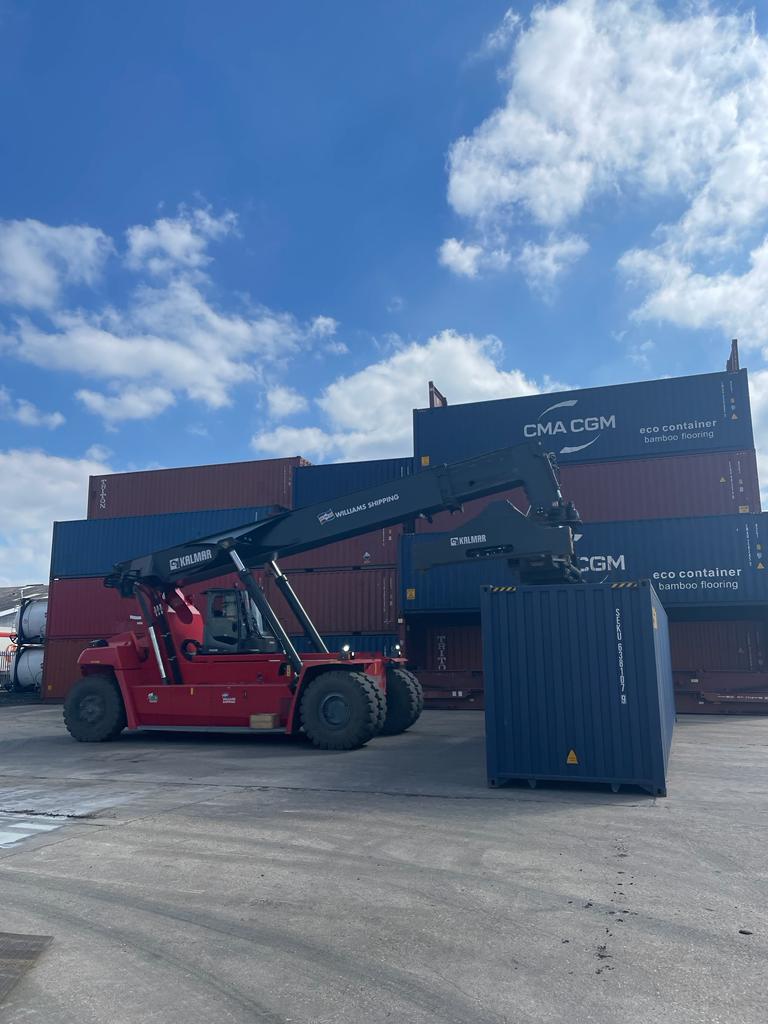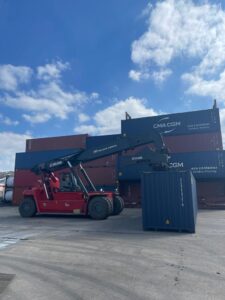
3rd April 2023
What is cargo handling: A Q&A with our cargo specialists
Q: 1. What is cargo handling?
A: Cargo handling is the process of loading, lashing, and unloading different types of cargo, which can vary in all kinds of weights and sizes. A lot of these may require specialist lifting and handling equipment and skill sets.

Q: 2. How many jobs are completed each week and what is the most frequent cargo that we are handling?
A: Our division is always busy. We have recurring cargo jobs that we undertake for long serving customers but we also work on all different types of jobs for new and existing customers. No two days are ever the same.
We work with a variety of businesses, spread across many industries including freight forwarders, shipping lines and haulage companies, all with unique requirements.
Some cargo is more difficult to handle than others. For example, cargo that is fragile or heavy may require special handling equipment. The cargo that we often handle can range between standard pallets & oversized crates to cable reels and plant / agricultural machinery. We can move any type of cargo, provided it is safe and suitable to do so.
Q: 3. What is the process of cargo handling?
A: The steps involved vary depending on the type of cargo. However, the principles include:
- Exports: Loading cargo to containers & flat racks
- Imports: Unloading / devanning cargo from containers & flat racks.
- Sorting cargo by destination or by type of cargo.
- Storing cargo in a warehouse, in our cargo yard, or other storage facilities.
Cargo handling is a complex process that requires careful planning. We must ensure that cargo is handled safely and efficiently, and that we meet any cut off and deadlines that are given to reach its destination.
Part of the process sometimes involves communicating with our transport team about transporting what has been unloaded / devanned from a container or in our storage yard.
Q: 4. What are the main obstacles you face each day?
A: We face many obstacles daily but due to the efficiency of our work, we are always ready to deal with potential issues. Our team consists only of specialists with many years of experience, working to deadlines, making quick decisions, and delivering the best customer service.
Some of the obstacles that we face include:
- Cargo arriving later than planned for exports, which means we must adjust and prioritise our planning.
- Release issues with the depot, leading to delays in collecting shipping containers for exporting cargo.
- Last minute vessel movements, which can delay import arrivals, not only that, but it can also cause earlier export cut offs.
- Bad weather can play a huge part in cargo handling and planning. If there is thick fog or high winds, this can cause temporary delays in the port. In this case we can store cargo in our yard if needed until the weather improves and the job can be completed safely.
Sometimes the loading process could be prolonged due to external reasons and in those cases, the cargo is stored in our spacious open storage yard.
Q: 5. What equipment do we have in-house?
A: Our brand new 45t Kalmar reach stacker and 17t Kalmar fork truck deliver the best service. We additionally have a 5T forklift and 2.5T forklift.
Williams Shipping is a family business established by George Williams in 1894, now run by the fourth and fifth generations of the Williams family. George converted an ex-Royal Navy pinnace into a sailing barge and carried loads such as building materials and grain across the south coast of England and to the Isle of Wight. As marine and transport industries have evolved the company has developed alongside, supporting growth, and creating marine and logistics solutions at every stage.





















